For as long as I can remember, people have labeled me the “smart” kid. Being smart was my identity that earned me a curious combination of respect and bullying from my peers in elementary school. My teachers would marvel, calling me a “walking Encyclopedia,” yet never quite knowing how to handle my social ineptitude, which I now know was a behavioral and emotional response to complex trauma. In high school I was voted the “class brain,” and there are several painful stories of people—both would-be romantic partners and friends—finding me too smart for them. Even the spiritual name that my teacher gave me, Pragya, means intelligent, wise one, specifically attributed to the goddess Saraswati’s holistic knowledge. I can acknowledge that my unique breed of intelligence allows me to do many big things in the world as it relates to my business, writing, advocating, training and mentoring others…all that jazz.
And in that second question rests a big part of the answer—I am not stupid, yet I can be foolish. Somewhere during this month from hell that was December 2019, it dawned on me that foolish is my one word intention for 2020. I’ve engaged in this ancient practice of embracing a word at the dawn of each year for almost a decade now, and foolish certainly is the most curious choice of a word to emerge. Yet it has, so I’m going with it.
There are many meanings of the word foolish dating back to Middle English, with many pejoratives like weak-minded, silly, or lacking judgment offered up as definitions. Yet one definition which is largely associated with the Holy fool archetype is “an ardent enthusiast who cannot resist an opportunity to indulge an enthusiasm.” That’s certainly me. Have you ever seen me dance? Or geek out about something that incites my interests and passions? Or bubble with an Anne Frank-like optimism that even with all of the shit happening in the world, people are still really good at heart?
One of my most precious spiritual influences, the Dutch theologian Fr. Henri Nouwen (1932-1996) cast a very beautiful light on what it means to be foolish in his complied reader Spiritual Formation (2015). Foolish means “slow to believe.” He goes on:
Foolish is a hard word. It can also crack open a cover of fear and self-consciousness and lead to a whole new knowledge of being human. It is a wake-up call, a ripping off of blindfolds, a tearing down of useless, protective devices. You foolish people, don’t you see? Don’t you hear? Don’t you know?
Wow. I’ve been in this process of my healing for quite a while now. And framing it this way allows me to offer a new compassion to myself. My hesitancy to believe beautiful things about the reality of my true self, my nature, and the non-abusive reality of the Divine is a legitimate response to the impact of trauma. It’s been slow going for sure yet when I look at the progression of my life since I first started questioning things at the age of 19, I can see that I’ve learned quite a bit. My belief about myself and my spirit have shifted immensely. Of course I can get tripped up when I fall into some of the same patterns or get tangled up in the same knots, especially as it relates to love and personal relationships. I’ve had quite a bit of shame to wade through being a public figure in the trauma recovery movement and ending up in a second marriage that was abusive on every level. Cops were called, the whole nine yards—in time, I may choose to reveal more publicly yet this is a big step for me saying this much out loud.
“How can a smart person be so dumb? When will I ever fucking learn?,” I cried out many nights as I scrambled for a way to get out and end up with my sanity intact.
Today, just over two years later, the important point to emphasize is that I got out, and more than that, I’ve forgiven myself for being human and maybe even a bit foolish. It’s taken me a long time to learn certain things, and that education continues. May I be kind to myself about this reality in 2020 and in whatever years I may get to live beyond that.
May I also recognize that being foolish isn’t all bad—teasing out the doubts and being eager to learn new ways of being in the world fuels my sense of curiosity that always keeps this life interesting. And the enthusiasm that comes with being foolish—every time I feel my own smile on my face I can tap into some sense of gratitude for not losing that child-like sense of wonder, even though I’ve felt battered around by the world quite a bit. One of my favorite artists, Krishna Das, wove these beautiful verses called My Foolish Heart into one of his chants:
My foolish heart
Why do you weep?
You throw yourself away again
Now you cry yourself to sleep
My foolish heart
When will you learn?
You are the eyes of the world
And there’s nowhere else to turn
It’s little wonder I embraced these verses as an anthem of sorts in the wake of getting out of my marriage. As I’ve listened to them over and over again in the past weeks, I’m hearing an invitation to trust myself more, to trust in the process of it all with greater abandon. There may still be some big healing projects that need to take place for this trust to fully crystallize, and I’m game. Like any holy fool, I cannot resist the opportunity to indulge the enthusiasm.
Photograph of Dr. Jamie by Mary Riley

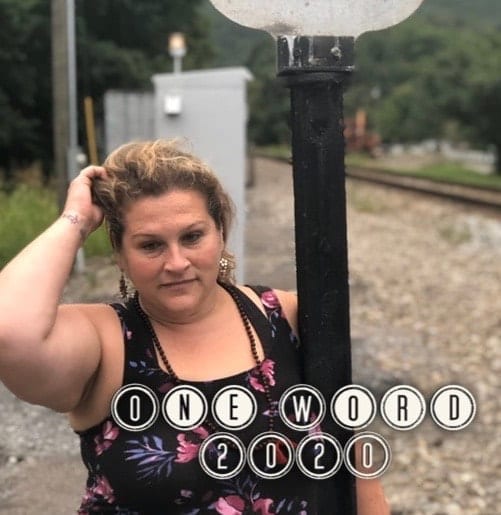


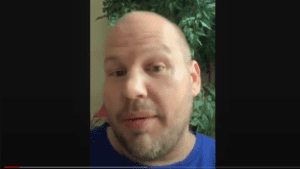
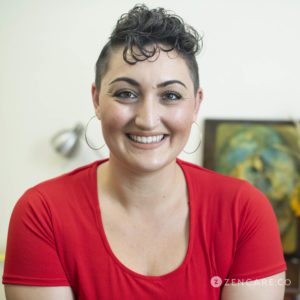



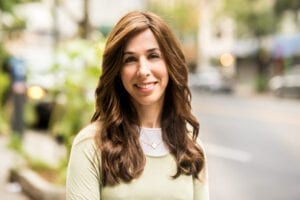


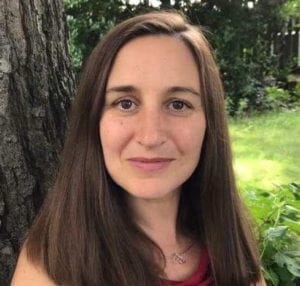

One Response
Thank you for this beautiful vunerable writing.